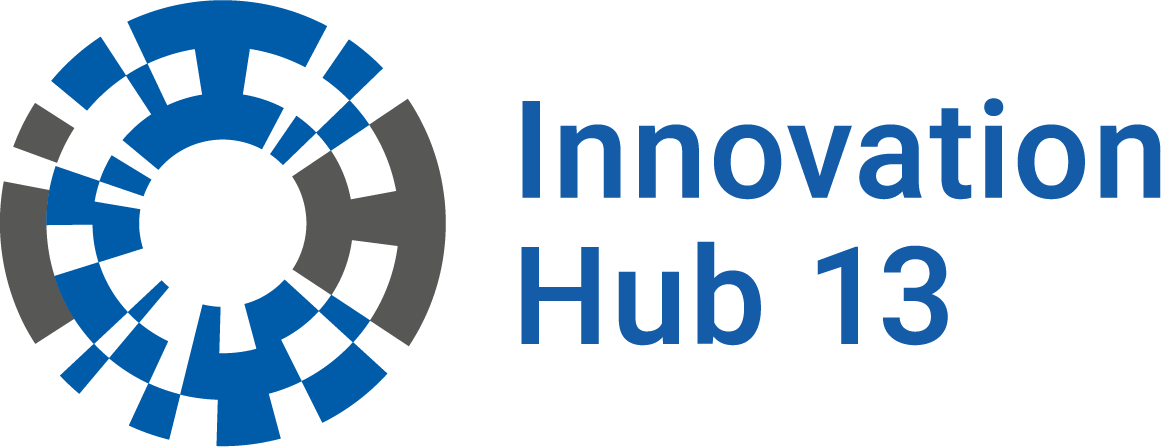We offer you the
fast track
to transfer
2 629 440 Minuten, 43 824 Stunden, 1826 Tage. Der Innovation Hub 13 hat sich in den vergangenen fünf Jahren zu einer bedeutenden Transfer-Schnittstelle entwickelt – in der Region entlang der A13 und darüber hinaus. Gemeinsam haben wir den Ideen-, Wissens- und Technologietransfer vorangetrieben, etabliert, gelebt. Nun ist es an der Zeit, den Blinker zu setzen und die Transfer-Autobahn für eine Pause zu verlassen. Wir werfen einen Blick in den Rückspiegel und lassen unsere Reiseroute Revue passieren.
The Innovation Hub 13 is the interface and the connection spot between science, economy and the public in and for the region alongside the Federal Motorway 13 (Autobahn A 13) connecting the cities of Berlin and Dresden.
We translate, mediate and network for a cross-disciplinary exchange of knowledge, technologies and solutions in the fields of Digital Integration, Lightweight Construction and Life Sciences.
Our objective is to bring together actors from various disciplines to foster and promote the region’s advancement in a joint project and effort.
Our components for your success:
Transfer scouting
We connect academic know-how with the demands of regional companies. What can we do for you? Please feel free to contact our transfer scouts. More →
Events
Get to know us or your future cooperation partners personally.
Whether on-site or digital, our events are a perfect spot for networking. More →
InnoRadar
Innovative solutions distinctly clustered and pooled for you. Discover more than 50 prototypes, technologies, methodologies and algorithms from current research. More →
innofab_
We are looking for innovative business ideas and creative solutions from science: register now for the innofab_ ideas competition! More →
Testbed
Do you want to put to the test whether specific technologies are applicable for your specific needs? Please find here more information about our tests beds. More →
InnoLabs
In the InnoLabs, new synergies for successful innovation projects are generated so that you can jointly with other regional players master technical challenges. More →
Showrooms
Research at first-hand! Get to know more about newly developed technologies and application on-site at our campus or online. More →
Regional Foresight
How can and could the region alongside the motorway A13 evolve in the medium term and in the long run? We think ahead and develop future scenarios for the region. More →
InnoXR
Please feel free to visit our laboratories and workshops digitally via our virtual tours and discover interesting facts about research and technology. More →
Citizen Science
Citizen Science aims to involve citizens in the different phases of research projects. More →
Do you have questions, suggestions, ideas or specific projects? We are looking forward to talking to you!
Technical University of Applied Sciences Wildau
Brandenburg Technical University Cottbus-Senftenberg
The "Innovation Hub 13 - Fast Track to Transfer" of the Technical University of Wildau and the Brandenburg Technical University of Cottbus-Senftenberg is one of the 29 selected winners of the federal government funding initiative "Innovative College", equipped with funds of the Federal Ministry of Education and Research BMBF And the state of Brandenburg. Further information can be found at www.innovative-hochschule.de



